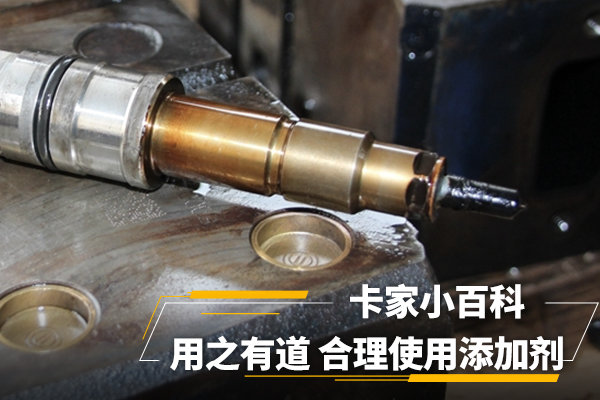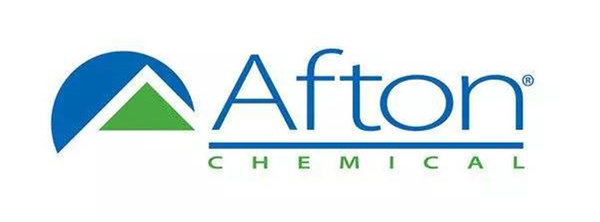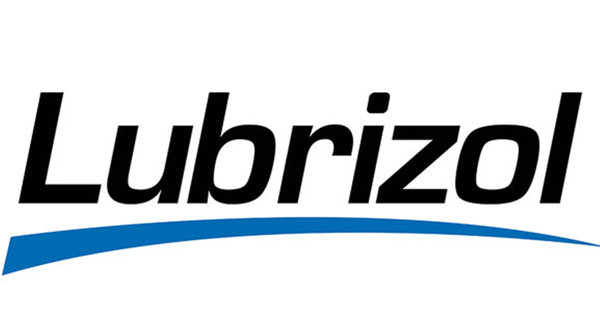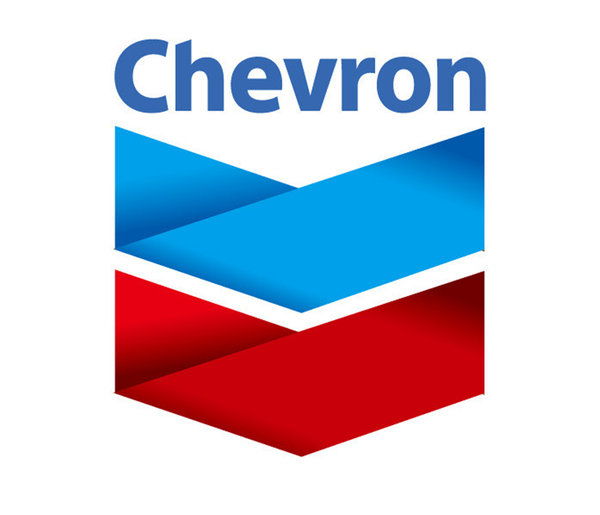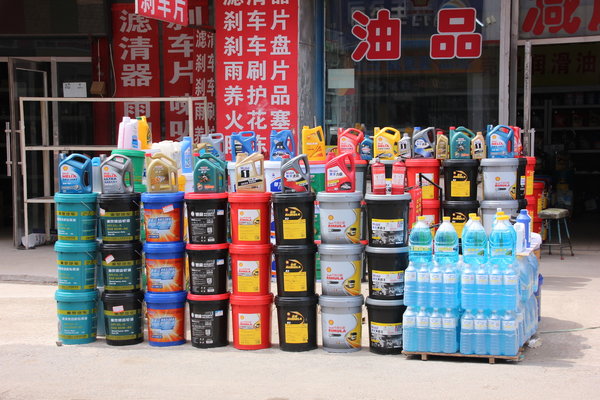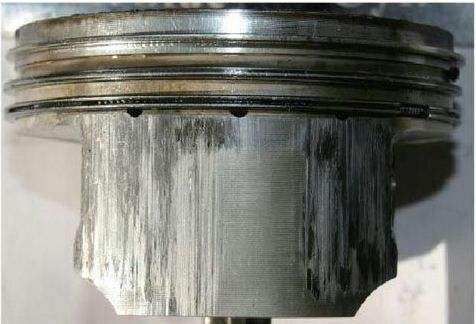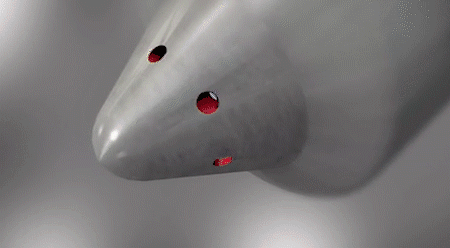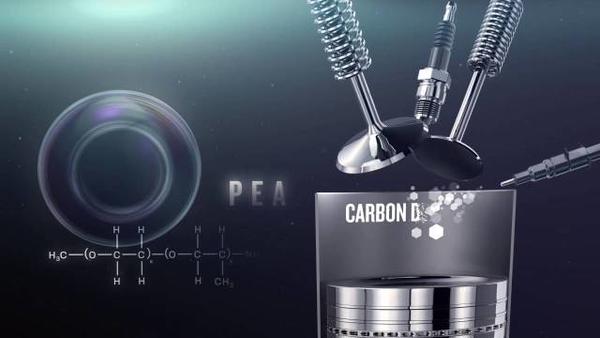07
2025
-
08
Truck Encyclopedia (28): Unknown additives Don't add them indiscriminately
Some card friends asked, when I changed the oil, the additives in the engine oil were added in advance, so can some individually packaged oil additives or fuel additives be added separately? If you add something like this, what should you pay attention to?
So today's truck encyclopedia, let's talk about additives again.
▎The four major manufacturers control the oil additive market
As an important part of engine oil, additives are not the technical content that ordinary companies can research and produce. There are currently four most famous additive manufacturers in the world.
● Infineum
In 1999, ExxonMobil and Shell Oil merged their additive businesses to form a joint venture in which each company holds a 50% stake.
The history of Runinal can be traced back to the 30s of the 20th century. Around 1930, Runinglian developed the first decondensation agent, which is a powerful old oil additive company.
● Afton
In 1921, Charles Kettering, an engineer at General Motors, discovered that adding tetraethyl lead to gasoline could reduce engine knocking, and in 1923, Charles Kettering established General Chemical Company, a joint venture between General Motors and Standard Oil of New Jersey, and in 1942, the company was finally named Ethyl Company.
In the 21st century, in order to further expand the two pillar industries of petroleum additives and tetraethyl lead, in 2004, Ethyl Company was changed to NewMarket, and Afton and Ethyl became independent, each focusing on developing their own product lines and becoming independent additive companies.
● Lubrizol
Lubrizol Corporation is a subsidiary of Berkshire Hathaway (Buffett), founded in 1928 and headquartered in Wycliffe, Ohio, USA.
Lubrizol has two main divisions: Additives and Advanced Materials. The main products of the additives division are: vehicle transmission additives, engine oil additives, fuel additives and industrial lubricant additives.
● Chevron
Chevron, formerly known as Standard Oil of California, was one of the "Seven Sisters" who dominated the world's oil industry in the early 20th century.
According to statistics, Standard Oil had a monopoly on 95% of U.S. refining capacity and 25% of crude oil production at its peak, and the monopoly lasted until 1911. On May 15, 1911, the U.S. Supreme Court ruled that Standard Oil was a monopoly under the Sherman Antitrust Act.
According to this ruling, Standard Oil was split into several companies, and the original Standard Oil of California was renamed Chevron, which was the predecessor of Chevron. It is now known as Chevron Corporation.
At present, the oil products of international brands that we can buy, such as Castrol, Mobil, Shell, Limo, Peng and other brands, basically use additives from the above four companies.
▎Can third-party additives be used?
● Oil additives, don't risk your engine
Seeing this, there may be card friends who want to ask, almost all the additives of so many brand oil manufacturers are taken from these 4 companies, so can I add additives of other brands to my truck?
Generally speaking, in the production process of engine oil, manufacturers have fully tested the composition and proportion of additives according to the product positioning and working conditions requirements of engine oil.
注:
Bore Protection
Aftertreatment Compatibility
Corrosion resistance
Oxidative Thickening
Piston Deposits
Soot resists soot
Wear Abrasion Resistant
Fuel Economy
Taking Volvo's truck oil standard VDS-3 as an example, through Lubrizol's oil performance comparison, it can be seen that as long as it is certified by ACEA or API, whether it is CK-4 or ACEA E9-16, or other standards, it can basically meet or even exceed the manufacturer's requirements for lubricating oil, and can fully meet the operating conditions of the engine.
In other words, regular engine oil can fully meet everyone's normal needs, and the oil additives have been perfected, and the performance of engine oil is also very balanced.
Of course, if the manufacturer has special requirements for engine oil standards, you should still choose engine oil according to the manufacturer's requirements when changing the oil.
Therefore, when changing the oil of your truck, you can change it according to the manufacturer's manual, and you don't have to spend money to buy other additives.
As a card friend, the performance pursuit of trucks is mainly based on stability and reliability, saving fuel consumption, and this is one of the reasons why the topic of engine oil has endured.
At present, the engine oil additives mainly include anti-wear additives, which are mostly phosphorus, zinc, organic tungsten, molybdenum disulfide, boron nitride and other components.
In addition, there are additives to enhance lubrication, additives to relieve oil burning, and cleaning dispersants added before maintenance.
Because not every additive company can do compatibility tests on the engine oil sold on the market, let alone achieve the effect of its publicity. Moreover, both oil manufacturers and OEMs are strictly prohibited from adding additional additives to engine oil. If such substances are added, the manufacturer is likely to consider the user to waive the warranty of the engine or the whole vehicle.
Therefore, Truck Home recommends that in addition to the oil additives added before maintenance, other types of oil additives should not be used.
● Fuel cleaner, appropriately added, effectively prevent carbon deposition
Although additives for engine oil should not be used as much as possible, additives for fuel can still be used. Moreover, whether it is an automobile manufacturer, or PetroChina or Sinopec, they have such additive products for sale, and the state even has mandatory standards for such additives.
Fuel cleaners, also known as carbon deposit eliminators, are chemicals used to suppress or remove deposits from engine fuel supply systems and fuel injectors.
Automotive diesel cleaner is an additive used for various high-speed, low-speed and heavy-duty diesel engines. The main function is to eliminate and reduce the new generation of nozzle deposits, and can restore or improve fuel atomization efficiency, so that the fuel economy and emission reduction of the engine can be maintained under good conditions, in addition to reducing the nozzle failure rate.
The current our country standard for diesel detergents is GB32859-2016, which came into effect on March 1, 2017, and is a standard for detergents used in diesel engine fuels such as vehicle diesel, ordinary diesel, and biodiesel blended fuel (B5). At the same time, the standard also stipulates the terms and definitions of diesel cleaners, and makes requirements for test methods, inspection standards, packaging and transportation of diesel cleaners.
Regarding gasoline standards, as early as 1999, our country's "Hazardous Substances Control Standard for Automotive Gasoline" required that refined oil products on the market must be added with detergents. The latest standard for automotive gasoline cleaners is GB19592-2019, which will be implemented on May 1, 2020.
The U.S. Environmental Protection Agency also stipulated in 1995 that a certain dose of detergent must be added to automobile gasoline.
Therefore, as long as it is a fuel additive from a regular manufacturer, it can be added.
● Editor's postscript
A small additive has a really big effect. Proper use can greatly extend the life of the engine and reduce fuel consumption. However, if used improperly, it will cause unpredictable damage to the vehicle.
When adding oil additives, make sure that the additives added are compatible with your oil, otherwise the oil may have various unpredictable problems such as condensation, emulsification, and separation, resulting in engine lubrication failure.
When adding fuel additives, it is important to understand the efficacy of the product. For old trucks, carbon deposits may be more serious, and if they are used in large quantities at one time, a large amount of carbon deposits may be cleaned, which may cause the engine to light up and increase fuel consumption in a short period of time. When adding, be sure to understand the performance of the product, so that you can have a comprehensive understanding of your vehicle and protect your car while enjoying a better driving experience!
Previous Page
Previous Page



